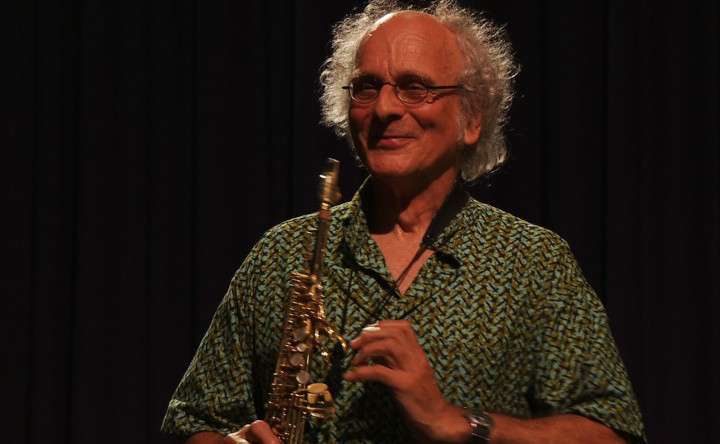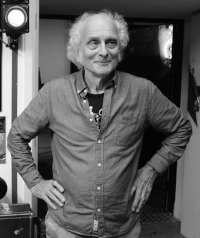
In today’s youth-obsessed musical culture, where Tik-Tokers can become overnight stars, it’s comforting to know that jazz, at least, offers a haven for older creators. For proof, look no further than to British saxophonist Trevor Watts who will conclude a busy month of New Ghosts concerts Monday in a duo with his longtime percussion partner Jamie Harris at Waterloo Arts Café.
Watts couldn’t be on Tik-Tok if he wanted to. He doesn’t have a website, and as he wrote me last week, “I have no mobile phone (2 saxes though). At 84 I can still only really be bothered about the music to be honest.”
Watts’ extraordinary dedication to the music has made him a major figure in the development of jazz, though his contributions are not as well known on this side of the Atlantic as they deserve to be.
Watts is a founding member of the Spontaneous Music Ensemble (SME), a loose assemblage of British jazz musicians that arguably established a recognizably European approach to free improvised music. Along with drummer John Stevens, a co-founder of the group, alumni of SME include guitarist Derek Bailey, Dave Holland a bassist and longtime U.S. resident, saxophonist Evan Parker and Canadian-born trumpeter Kenny Wheeler. Watts is the only founding member still with us.

SME came together in 1966, just weeks after the Beatles released Rubber Soul and soon developed a distinctive, quiet sound that that was dubbed “insect music” by some, emphasized close listening, small gestures, an absence of tonal harmony and regular rhythm.
Though SME was enormously influential, Watts had other music on his mind, most notably African drumming, and his various ensembles since leaving SME for the last time in the 1970s have forsaken the nearly arrhythmic SME sound for one that places the drum—and often, as in his various Moiré Music Groups, a drum choir, at its center.
Watts’ pivot from the inward, hive-like SME approach to extrovert music he would make with Moiré and with his aptly named Celebration Band is as startling in its own way as was Miles Davis’ so called “plugging in” a decade before.
And it’s heady stuff, especially when Watts blows forthright, snaky lines over African polyrhythms, as he does on Ancestry, a spirited 2007 session with Harris released by the Michigan-based Entropy label. On that recording, Watts’ playing on soprano and alto saxophones is largely modal, incantatory, and thanks to a frequent use of circular breathing, nearly nonstop. The energy level, stoked by Harris’ ringing hand drums, is remarkable.
And even at 84, there’s little reason to expect anything less on this tour. Still, given the punishing ordeal facing non-U.S. musicians in getting visas that will permit them to play here, it’s fair to wonder if this might be the last opportunity we will have to hear Trevor Watts again—something to keep in mind when planning your listening for the week.
Trevor Watts/Jamie Harris (with an opening solo set by bassist Max Hyde-Perry), Monday, Oct. 30, 8 p.m., Waterloo Arts Cafe, 15601 Waterloo Rd., Cleveland. $20 suggested donation. No one turned away for lack of funds.

